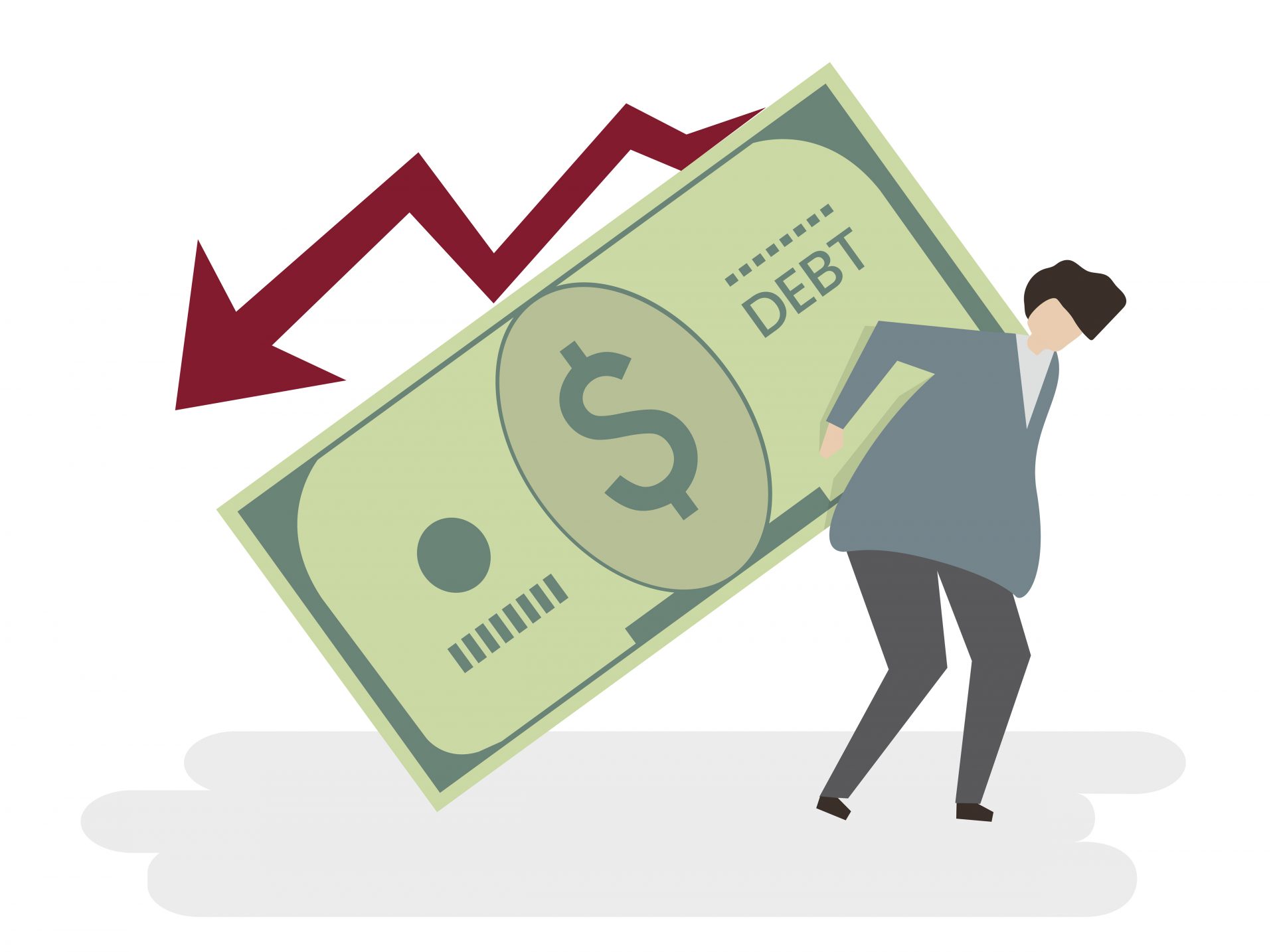How to Avail Debt Consolidation Loan for Business
6 Mins Read
Published on: 16 April 2019
Last Updated on: 08 November 2024

toc impalement
A negligible number of businesses have been run debt-free. Every entrepreneur knows that without enough funding or capital, you cannot run a business, therefore availing of debt consolidation loan programs are must if you not only want to save your existing business but also expand it further. This means that most businesses have been built on debt. Unfortunately, there are cases when your rate of returns will be low and you will be unable to clear your debts.
Taking supplies on credit and using your credit cards could seem like the best business decision at the time but with time, debt overcomes the business. Even though such situations threaten the existence of businesses, they shouldn’t be the end of your ventures. You can turn things around by having an effective debt management strategy.
While there are many strategies devised to help you manage debt, taking a loan to repay the debts then having to repay one loan, or debt consolidation has always been a preferable debt management strategy.
Requirements You Need to Avail Debt Consolidation Loan:
Not every business or business owner is considered a great candidate for a debt consolidation loan. To qualify for a debt consolidation loan, you should have the following characteristics ticked off:
1. Having multiple outstanding loan products
If you are currently paying off more than one loan product and would like to combine the loan debts into one loan with one rather than multiple monthly repayments, then you should consider and you could be considered for debt consolidation with the help of a debt consolidation calculator.
2. Having high-interest loans

Debt consolidation loans often charge lower interest rates. If you are looking for a way to lower the current high interests on your loans, then you are a candidate for debt consolidation. However, you should note that low interests on debt consolidation loans are approved after your revenue, credit score, and time in business have been analyzed.
3. Strong personal credit score

The biggest determinant of whether you qualify for loans or not and the amount you qualify for is your credit score. Your qualification for the debt consolidation loan and the interest rates charged largely depend on your credit score. If you have a low credit score, you may not get better terms on the loan interests since you are perceived a high-risk borrower and lenders have to protect you.
Read more: 5 Tips to Manage Personal Credit Efficiently
4. Current short term loan products
If you need more time to repay your current short term loan products, then you should consider consolidation. A consolidation plan with a multi-year term on the loan could be what your business needs to improve the business’ cash flow. Calculating your debt amount with a debt consolidation calculator is one of the wisest decisions you will be taking.
Read more: Various Types of Loans for Your Financial Aid
5. When debt consolidation makes sense for your business
Yes, you can take a debt consolidation loan when you feel and know that your business will not grow effectively with the high current expenses. Once you analyze the business revenue, expenses, cash flows and the future potential of the business, then you may consider getting the debt consolidation loan.
6. How to get the debt consolidation loan
The first rule of debt consolidation is shopping around. The advent of technology and the shift from traditional banking and financing platforms to internet banking has opened up a bigger market for businesses offering different debt consolidation packages.
The variance may not seem too big at first, but you shouldn’t overlook the fact that some packages come with many hidden charged and fees. Therefore it is mandatory that you calculate the total amount of debt with the help of a debt consolidation calculator.
Read more: Personal Loan Facts To Help You Take Right Decisions
Tips on How to Get Debt Consolidation Loan for Business:
To get the best debt consolidation loan for your business, follow the following simple steps. It is advisable that you first learn about all the rules, regulations, pros and cons of the loan and then try an avail for it:
1. Identify all existing business debts:
By the time you are considering a debt consolidation loan, you should have listed the debts you have. However, you should have accurate figures of the amount you owe your creditors. So, prepare a schedule with details of the loans, their total value, including the interests and fees then get an amortization schedule just to ensure that you have the exact value of the debts.
The amortization schedule should be used for all the other loans then use the ending value and add that for all loans. This is what you owe your creditors.
2. Look for prepayment penalties:
When a lending institution extends a loan to you, they expect to make money by the time the loan matures. When you pay them everything ahead of time, they don’t make as much as they wished to. Therefore, some lenders include a prepayment penalty if you pay everything ahead of time. Do your loans have this penalty? Include that cost in the amount to be paid.
3. How much are you consolidating?
With the totals above, including penalties and other fees, determine the amount you wish to consolidate. That amount equals the total size of the debt consolidation loan you’ll apply for.
4. Calculate the effective APR:
Interest rates vary. To be safe, use the Annual Percentage Rate, APR to calculate the interest that will be charged for the loan product. APR is preferable to other rates since loans have different terms, amortization frequencies, and the rates could be calculated using simple or compounding interest processes.
5. Shop for funding options:
You can get a debt consolidation loan in the form of funding options like a personal loan, an SBA, or alternative debt consolidation lenders. Before agreeing to anything, you should carry out due diligence to ensure that the package is the best for you.
6. Compare APRs:
As you shop around, compare the APR offered by the lenders. The amortization and the effective APR calculator will help you in determining the best rates. There are several debt consolidation programs which will give you detailed information on how to compare APRs.
7. Sign the dotted line
Once you have found the most preferable lender with the best loan package, a favorable amortization schedule, and low or affordable interest rates, you should put pen to paper. Ensure that you read all the details of the fine print before signing. Get the help of debt consolidation programs if you are not sure about where to sign and what consequences will it bring to you.
8. Pay existing debts

Once the loan is approved and in your bank account, pay off your debts. Pay the total amount due regardless of what else comes up. The loan should cover the existing loans if you calculated everything well; however, if you are not sure about it when calculating your total debt with a debt consolidation calculator will be feasible.
9. Repay faithfully:
To protect and to improve your credit score after debt consolidation, follow through with the payments. Make it a rule to pay all your debts before they are due. Most debt consolidation loans lack the prepayment penalty. When you can pay more than you have to.
10. Keep a record for yourself:
Always remember that whenever doing business, you always need to have some documented proof of the total amount of debt that you have repaid so that you can show it anytime in your income tax file. It also helps you to skip some of the taxable amounts and therefore, it becomes easy for you to pay your taxes.
There are certain debt consolidation programs that help you with these calculations and also tells you about the ways in which you can implement your loan in the income tax file. Also, leave a comment in the comment section below to let us know whether this business blog on how to avail for debt consolidation loan has been helpful to you or not.
In conclusion, make smart choices for your business and only consolidate when it is the best strategy that could even result in savings. Avoid unnecessary expenses and be frugal in your business spending. Finally, do not skip a repayment.
Read Also:


















Comments Are Closed For This Article